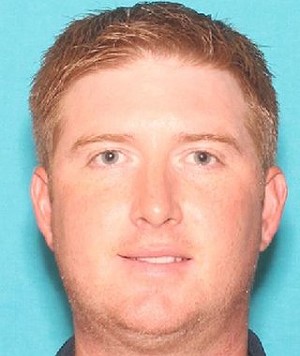The defense is meant to shield public officials from liability, in part, to help prevent damages from frivolous lawsuits. But this week, a federal appeals court overturned the lower court's ruling that had dismissed a lawsuit filed against the officers by Timpa's family. The appeals court rejected the officers' claims of qualified immunity and sent the case back for a trial.
On Aug. 10, 2016, Timpa was standing outside a shop on Mockingbird Lane when he called police, saying he was frightened, off his meds and suffering from mental illness. With police on their way, two nearby security guards spotted Timpa walking into traffic as he crossed the street. They handcuffed and detained him until police arrived.
When Dallas Police officers got there, they restrained him on his stomach. One of the officers, Dustin Dillard, pressed his knee into Timpa’s back and held his face down in the grass for 14 minutes.
Timpa begged officers to get off of him before going unconscious. “You’re gonna kill me!” Timpa yelled.
As officers continued to restrain the now-unconscious man, they cracked a few jokes. “It’s time for school. Wake up!” officer says. “I don’t want to go to school! Five more minutes, Mom!” another officer responds as they both laugh.
Before loading him into an ambulance, a Dallas Fire-Rescue paramedic injected Timpa with a sedative. In the ambulance, one of the paramedics said Timpa had died. All of this was captured on police body camera footage that was released after a three year legal battle for the records taken on by The Dallas Morning News and NBC5.
In a lawsuit, the Timpa family alleges that Dillard used excessive force. They also make claims of bystander liability against the other four officers on the scene: Sergeant Kevin Mansell; Senior Corporal Raymond Dominguez; and officers Danny Vasquez and Domingo Rivera.
Last year, Dallas Judge David Godbey ruled that the officers were shielded by qualified immunity. The Fifth U.S. Circuit Court of Appeals reversed that ruling this week, saying, in part, “A jury could find that this use of force constituted deadly force.”
Geoff Henley, the attorney in the Timpa case, told The News, “They vindicated everything we have been saying in the last five years.”“A jury could find that this use of force constituted deadly force.” – The Fifth U.S. Circuit Court
tweet this
Niles Illich, an attorney with the Dallas law firm Scott H. Palmer PC, said Timpa's case could open up options for other lawsuits. "There’s no question about that,” he said. “When it came out last night, we started communicating inside the office about it. We have many cases this has potential application for.
“I think it’s a clear application of how the 5th Circuit wants us to do an analysis and wants district court judges to do an analysis on qualified immunity,” Illich said.
A qualified immunity defense has two main parts, he explained. One is a determination of whether the use of force was justified. The other part is a determination on whether there was a violation of “clearly established law," he said.
“Now, there are a lot of disputes about what it means for law to be clearly established,” Illich said. “It starts with the Supreme Court idea that you don’t look at it from a real high level of generality and you need to be pretty particular about the case, so that an officer on the street would know what he was doing was incorrect.”
There are cases cited in the Timpa lawsuit to argue that "clearly established laws" were violated. The cited cases have “ground-level facts that are different,” he said.
Generally, courts will cite these differences as reasons for why clearly established laws weren't violated.
"You know, 'The law’s not clearly established because this case occurred in the day and the one you’re citing to occurred at night,'" Illich said. "That’s not what the 5th Circuit circuit did here.”
In other words, the court took into account the logical similarities between the Timpa case and the ones cited in the lawsuit, instead of disregarding them because the circumstances weren’t exactly the same.
The 5th Circuit ruled that the lawsuit could move forward against Mansell, Vasquez, Dillard and Dominguez."We have many cases this has potential application for." – Niles Illich, Scott H. Palmer PC
tweet this
Since a Minneapolis police officer killed George Floyd last year, qualified immunity has emerged as a key issue in the debate over police reform. The George Floyd Justice in Policing Act of 2021, which passed in the U.S. House of Representatives in March, aims to limit qualified immunity as a defense to liability in a private civil action against a law enforcement officer.
But negotiations on the bill broke down when the parties couldn’t reach an agreement on the future of qualified immunity for officers and police departments, and Republicans wouldn’t budge on creating a national database to track police misconduct.
Texas was also working on its own George Floyd Act, which would have removed qualified immunity, a component police unions rallied against. However, Rice University political science professor Mark Jones told Texas Standard the bill was “chopped up” into different pieces, many of which have failed to gain traction.













